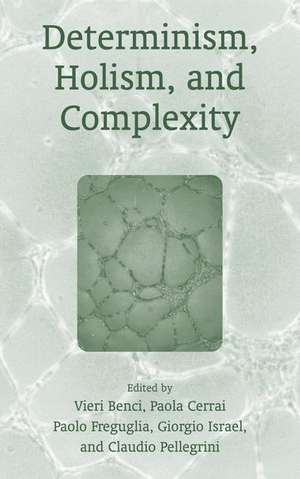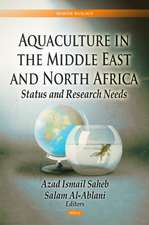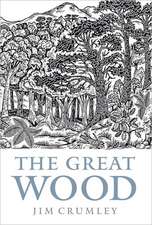Determinism, Holism, and Complexity
Editat de Claudio Pellegrini, Paola Cerrai, Paolo Freguglia, Vieri Benci, Giorgio Israelen Limba Engleză Hardback – 30 ian 2003
| Toate formatele și edițiile | Preț | Express |
|---|---|---|
| Paperback (1) | 1227.67 lei 6-8 săpt. | |
| Springer Us – 30 noi 2010 | 1227.67 lei 6-8 săpt. | |
| Hardback (1) | 1236.82 lei 6-8 săpt. | |
| Springer Us – 30 ian 2003 | 1236.82 lei 6-8 săpt. |
Preț: 1236.82 lei
Preț vechi: 1508.31 lei
-18% Nou
Puncte Express: 1855
Preț estimativ în valută:
236.73€ • 246.21$ • 198.38£
236.73€ • 246.21$ • 198.38£
Carte tipărită la comandă
Livrare economică 13-27 martie
Preluare comenzi: 021 569.72.76
Specificații
ISBN-13: 9780306474729
ISBN-10: 0306474727
Pagini: 402
Ilustrații: XVIII, 402 p.
Dimensiuni: 178 x 254 x 32 mm
Greutate: 0.99 kg
Ediția:2003
Editura: Springer Us
Colecția Springer
Locul publicării:New York, NY, United States
ISBN-10: 0306474727
Pagini: 402
Ilustrații: XVIII, 402 p.
Dimensiuni: 178 x 254 x 32 mm
Greutate: 0.99 kg
Ediția:2003
Editura: Springer Us
Colecția Springer
Locul publicării:New York, NY, United States
Public țintă
ResearchDescriere
Determinism, holism and complexity: three epistemological attitudes that have easily identifiable historical origins and developments. Galileo believed that it was necessary to "prune the impediments" to extract the mathematical essence of physical phenomena, to identify the math ematical structures representing the underlying laws. This Galilean method was the key element in the development of Physics, with its extraordinary successes. Nevertheless the method was later criticized because it led to a view of nature as essentially "simple and orderly", and thus by choosing not to investigate several charac teristics considered as an "impediment", several essential aspects of the phenomenon under investigation might be left out. The Galilean point of view also contains an acknowledgement of the central role played by the causal nexus among phenomena. The mechanistic-deterministic de scription of reality - for instance, a la Laplace - although acknowledging that it is not possible to predict phenomena exactly owing to unavoid able measurement error, is based on the recognition of the their causal nature, even in an ontological sense. Consequently, deterministic predic tion became the methodological fulcrum of mathematical physics. But although mechanistic determinism has had and, in many cases, still has, considerable success in Physics, in other branches of science this situa tion is much less favourable.
Cuprins
Preface. Contributing Authors. Part I: Physics. Complexity and emergence of meaning; F.T. Arecchi. A geometric optics experiment to simulate the betatronic motion; A. Bazzani, et al. Some remarks on the arrow of time and the notion of information; V. Benci. How real is the quantum world?; M. Cini. Decoherence and classical behaviour in quantum mechanics; G. Dell'Antonio, et al. Scaling laws: microscopic and macroscopic behavior; R. Esposito. Measure of diffusion entropy of weak turbulence; L. Galeotti, et al. Complexity in physics of an adhesive tape; B. Giorgini, et al. Reflections about the time arrow; A. Lepschy. The big computer. Complexity and computability in physical universe; I. Licata. On the uniqueness or multiplicity of physical theories; C. Pellegrini. An interplay between determinism and one-parameter semigroups; S. Romanelli. From dynamical systems to complex systems; G. Turchetti. Part II: Biology. Shape and size in biology and medicine; V. Capasso. Assessment of the quality of waters and the environment; N. Ceccopieri, R. Banchetti. Synchronization of neocortical interneurons; S. Chillemi, et al. The fractal borderland; G. Damiani. Emergent properties and complexity for biological theories; P. Freguglia. Ignoring complex interactions in natural ecosystems; M. Giovannetti. A compression algorithm as a complexity measure on DNA sequences; G. Menconi. Reductionism and history: the biology between Scylla and Charybdis; R. Morchio. A characterization for a set of trinucleotides to be a circular code; G. Pirillo. Deterministic and random components of over time evolution; G. Pulina, et al. Toward creating life in a test tube; M. Rizzotti. Phylogenies and the new evolutionarysynthesis; F. Santini. Cell system complexity and biological evolution; M. Sarà Self-organization and prebiotic environment; S. Traverso. Part III: History and Philosophy of Science. James and Freud on physical determinism; P. Casini. Probabilistic aspects in George D. Berkhoff's work; L. Dell'Aglio. The metamorphosis of holism; E. Gagliasso. Early approaches to the management of complexity; A. Millán Gasca. The dignity of the natural sciences; P. Omodeo. Holism: some historical aspects; S. Procacci. Towards a history of complexity; T.M. Tonietti.






